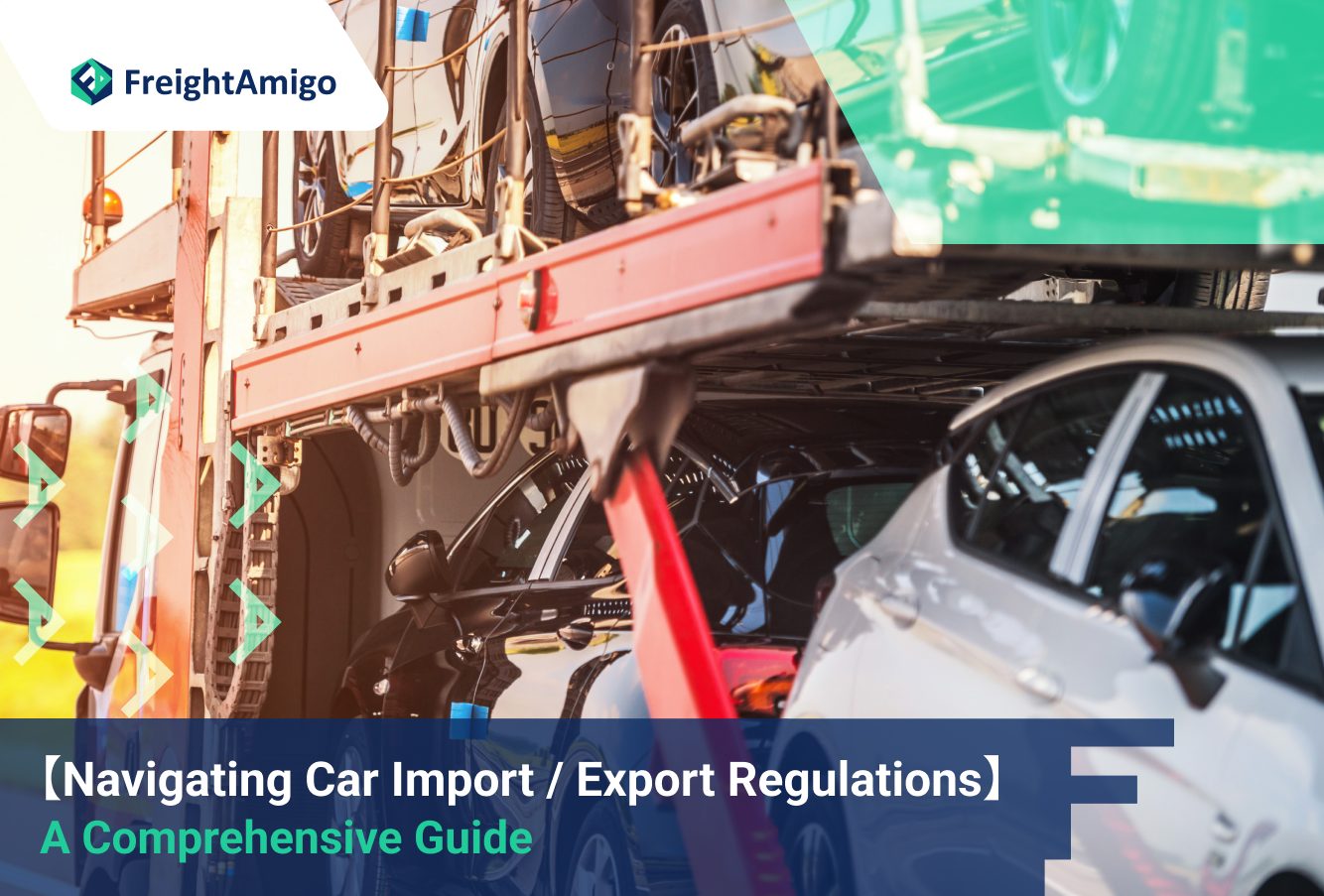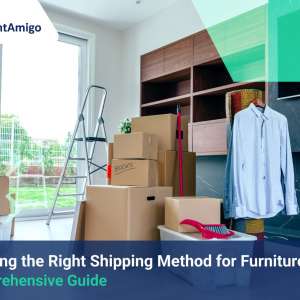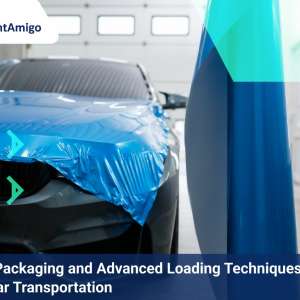Navigating Car Import/Export Regulations: A Comprehensive Guide
Latest update on 13 March, 2024 by Caspian Ng– Marketing Analyst at FreightAmigo
In the ever-expanding global automotive industry, car import/export regulations play a crucial role in ensuring safety, compliance, and fair trade practices. These regulations are put in place to protect consumers, maintain environmental standards, and promote fair competition among market players. Understanding and complying with these regulations is essential for individuals and businesses involved in the import/export of vehicles.
In this comprehensive guide, we will explore the intricacies of car import/export regulations, with a focus on researching and understanding the regulations of specific countries. We will also delve into the various import/export documentation and paperwork required to facilitate smooth and legal transactions. By the end of this guide, you will have a solid understanding of the key aspects involved in navigating car import/export regulations.
Want to compare the best Express, Air Freight, Sea Freight, Rail Freight & Trucking rates so as to have better control on cost?
Why Import/Export Regulations Exist
Import/export regulations exist to regulate the flow of vehicles across national borders. These regulations are designed to address several important factors:
- Safety:Import/export regulations ensure that vehicles meet the necessary safety standards and regulations of the importing country. This helps protect consumers from potential hazards associated with substandard vehicles.
- Environmental Compliance:Regulations aim to curb pollution and promote environmental sustainability by ensuring imported vehicles meet specific emission standards and comply with environmental regulations.
- Consumer Protection:Import/export regulations protect consumers from fraudulent practices, such as the importation of stolen or counterfeit vehicles. They help ensure that vehicles are accurately represented and meet the required quality standards.
- Economic Protection:Regulations can also serve as a means to safeguard domestic industries by imposing import duties or quotas on foreign vehicles. This helps maintain a level playing field and protects local manufacturers and dealerships.
Researching Import/Export Regulations
Before engaging in car import/export activities, thorough research on the regulations of the specific countries involved is critical. Here are some steps to guide your research:
Step 1: Identify the Countries Involved
Begin by identifying the countries from which you plan to export or import vehicles. Each country may have its own unique set of regulations, so it is essential to focus on the specific countries of interest.
Step 2: Locate Official Government Websites
Official government websites are valuable sources of information regarding import/export regulations. Look for government websites related to trade, transportation, or customs in the countries you are researching. These websites often provide detailed information on the requirements, procedures, and documentation necessary for car import/export.
Step 3: Consult with Industry Experts
Seek advice from industry experts, such as customs brokers, freight forwarders, or trade consultants, who have experience in car import/export regulations. They can provide valuable insights and guidance based on their expertise and knowledge of the specific countries you are dealing with.
Step 4: Join Industry Associations and Forums
Participating in industry associations and online forums can provide you with access to a community of professionals who are well-versed in car import/export regulations. Engage in discussions, ask questions, and learn from the experiences of others. These communities can offer practical advice and help you stay up-to-date with the latest developments in import/export regulations.
Step 5: Engage Legal Counsel
In complex cases or when dealing with unfamiliar jurisdictions, it may be wise to seek legal counsel. An experienced international trade attorney can provide expert advice, ensure compliance with regulations, and help navigate any legal challenges that may arise.
By following these research steps, you can gain a comprehensive understanding of the import/export regulations of specific countries and ensure compliance with all relevant requirements.
Import/Export Documentation and Paperwork
Car import/export transactions involve a variety of documentation and paperwork. Failure to complete and submit the required documents accurately and on time can lead to delays, penalties, or even the rejection of the import/export. Here are some essential documents you should be familiar with:
-
Bill of Lading
The bill of lading is a crucial document that serves as a contract between the shipper and the carrier. It includes details such as the origin and destination of the vehicle, the consignor and consignee, and the terms of the shipment. The bill of lading is issued by the carrier or their agent and is required for the release of the vehicle at the destination port.
-
Commercial Invoice
The commercial invoice is a document issued by the seller or exporter to the buyer or importer. It provides a detailed description of the vehicle being exported, including its value, quantity, and any applicable taxes or fees. The commercial invoice is used for customs clearance and serves as proof of the transaction between the buyer and seller.
-
Certificate of Origin
The certificate of origin is a document that verifies the country in which the vehicle was manufactured. It is often required by customs authorities to determine the eligibility for preferential trade agreements or to assess import duties. The certificate of origin can be obtained from the manufacturer or an authorized issuing agency.
-
Export License or Permit
Some countries require an export license or permit for the export of certain vehicles, especially those with military or strategic significance. These licenses or permits are obtained from the relevant government agencies and may involve additional documentation and scrutiny.
-
Import License or Permit
Similarly, some countries require an import license or permit for the import of vehicles. These licenses or permits are typically obtained by the importer from the designated government agency before the vehicle can be imported.
-
Vehicle Registration Documents
Vehicle registration documents, such as the certificate of title or vehicle registration card, are often required to prove ownership and legality of the vehicle. These documents may need to be presented to customs authorities at the port of entry.
-
Customs Declaration
A customs declaration is a form that provides details about the imported or exported vehicle, including its value, origin, and description. It is used by customs authorities to assess import duties, taxes, and fees.
-
Import/Export Clearance Documents
Specific import/export clearance documents may be required by customs authorities, such as the Import Entry Summary or the Export Declaration. These documents provide detailed information about the vehicle and its transaction, facilitating the customs clearance process.
It is crucial to consult with customs authorities and industry experts to determine the specific documentation requirements for each import/export transaction. Failing to provide the necessary documentation can result in delays, penalties, or even the seizure of the vehicle.
Conclusion
Navigating car import/export regulations can be a complex process, but with the right knowledge and preparation, it can be a rewarding endeavor. By understanding the reasons behind import/export regulations, conducting thorough research, and ensuring compliance with documentation requirements, individuals and businesses can successfully navigate the global automotive trade landscape.
To ensure a frictionless import and export experience, it is important to stay abreast of the latest developments in import and export regulations and maintain good relationships with trusted partners and advisors. FreightAmigo is your ideal partner in this process. As a professional logistics service provider, FreightAmigo has rich experience and expertise and can provide you with comprehensive import and export solutions. Whether it is understanding the latest import and export regulations or providing customized services for your vehicle transportation, FreightAmigo can provide you with professional support and guidance.
By choosing FreightAmigo as your partner, you can confidently conduct automobile import and export activities, conduct international trade, and push your automobile business to new heights.
Whether it is understanding the latest import and export regulations or providing customized services for your vehicle transportation, FreightAmigo can provide you with professional support and guidance. If you plan to carry out car import and export activities, please go to the FreightAmigo page for inquiries.
Read More:
【The Evolution of Logistics in the Toy Industry】 A Game-Changer for Toy Manufacturers
【Ecommerce Fulfillment Centers】 The Gateway to Shipping to USA
Duties & Tax Importing to Vietnam: A Comprehensive Guide for Businesses
If you have any inquiries on logistics/supply chain, feel free to contact FreightAmigo now:
Chat with us online | Hotline: +852 28121686 | WhatsApp: +852 27467829









































